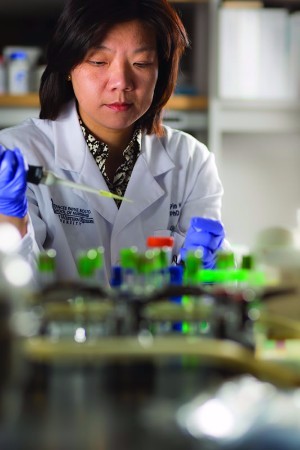LENS Health and Wellness
Fighting Cancer Fatigue
New Research May Hold Promise

Chao-Pin Hsiao, assistant professor
Losing her father and sister to cancer inspired Chao-Pin Hsiao, an assistant professor at the Frances Payne Bolton School of Nursing at Case Western Reserve, to help people overcome one of the most common and debilitating symptoms of the disease and its treatment: fatigue.
Unlike ordinary tiredness, cancer-related fatigue is not easily relieved by rest, and researchers do not understand exactly what causes it.
Hsiao, PhD, RN, is exploring two possible explanations by studying patients with prostate cancer undergoing radiation therapy. Both involve mitochondria, tiny bits of cellular machinery that convert the food we eat into energy our cells can use.
Her previous research established that radiation therapy can damage the genes that control these cellular power plants. And Hsiao suspects that damage prevents them from generating enough energy.
She also believes radiation might impair mitochondria, prompting several biological changes that also can cause fatigue.
To test her first hypothesis, Hsiao is measuring mitochondrial function in prostate cancer patients while they receive radiation therapy. She'll further test her hypothesis by measuring free radicals (that is, uncharged molecules) in particular types of white blood cells.
Ultimately, Hsiao hopes to identify potential interventions, such as tailored exercise regimens, to boost mitochondrial activity, and nutritional supplements, including vitamin C and coenzyme Q10, that destroy free radicals.
And, she believes, her findings could apply to other kinds of cancer- and treatment-related fatigue as well—if, as she suspects, some biological underpinnings of fatigue are common across cancers and treatments.





